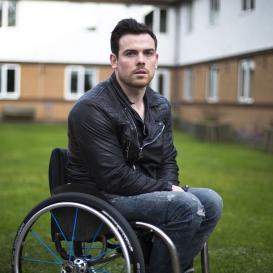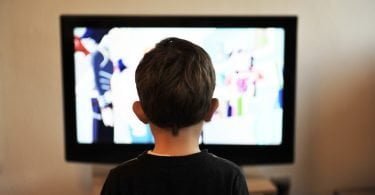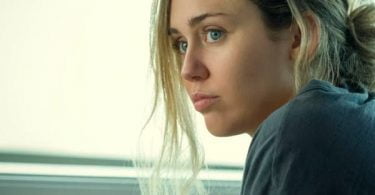A report published by Independent Living in Scotland in 2014 found that disability is often underrepresented and misrepresented by the media. So, BBC Three’s Defying the Label season, a series of 15 programmes centred on the lives of young people with disabilities in the UK, may have been seen as a welcome addition to our TV schedules. But does the season succeed in challenging stereotypes of disability?
Have you been enjoying our #disability season? For more clips & info go to #DefyingTheLabel: http://t.co/zghEiTVgFE pic.twitter.com/seA0jTbfB6
— BBC Three (@bbcthree) August 2, 2015
The topics
At first glance, the content of the season appears little different to many programmes based around disability. The documentary Me and My New Brain follows the typical format of an individual going on a ‘journey’, with snowboarding instructor Charlie Elmore retracing her steps following a brain injury. Paraplegic journalist, Sophie Morgan, looks at how being chained up in prayer camps, exiled from their villages and living rough, are all prospects facing those with disabilities in Ghan in The World’s Worst Place to be Disabled? As programmes, they fall in line with reoccurring media presentations of disabled individuals, particularly those from developing countries, as victims.
In this respect, Defying the Label could be seen to be replicating prevalent media representations of individuals with disabilities as victors over adversity or victims in society. So, how is it helping to battle stereotypes?
The line-up has also covered less commonly portrayed issues, from the struggle and heartbreak facing some disabled parents as they attempt to convince social services of their capability of raising their child in factual drama, Don’t Take My Baby. The challenge of recruiting like-minded people as personal assistants to young disabled people came up in Wanted: A Very Personal Assistant. The Ugly Face of Disabled Hate Crime addressed the worrying discrepancy between the reporting, recording and prosecution of crimes motivated by disability prejudice compared to other forms of hate crime.
Has BBC Three done the disabled a disservice in ‘Wanted – A Very Personal Assistant’? http://t.co/aHS8gKqPTy #DefyingTheLabel
— Athena Stevens (@athenastevens) July 31, 2015
Leaving inspiration porn at the door
Too often TV programmes involving disability have sensationalized narratives, encouraging the audience to view disabled individuals as inspirational or unfortunate. The title given to the documentary detailing eleven-year old Dillon’s attempts to obtain an amputation of his leg plagued by tumours as a result of neurofibromatosis. The Boy Who Wants His Leg Cut Off certainly conjures a feeling of sensationalism.
In a similar vein, the title of The Unbreakables, a series of episodes about student life at specialist further education college, National Star, has a slight air of ‘inspiration porn’. Nevertheless, both these documentaries contain little trace of such a viewpoint. From the beginning, it is clear The Boy Who Wants His Leg Cut Off is Dillon-centric – it is his voice that dominates the programme. His hopes and concerns are portrayed with eloquence and honesty, whilst the friendship, humour and relationship drama displayed in The Unbreakables is more likely to evoke feelings of resonance within the audience rather than amazement. By producing television devoid of a tone of overbearing sympathy or total awe, BBC Three may be credited with defying the norm when it comes to programmes about disability.
So much love for @bbcthree #DefyingTheLabel season! So many misconceptions about disabilities being shattered
— Keri Trigg (@keritrigg) August 10, 2015
Absolutely loving the @bbc3_iplayer #DefyingTheLabel series of programmes about young ppl with disabilities. More in vein of #EndTheAwkward
— Susan Love (@susandlove) July 31, 2015
Defying the label?
As unflattering stereotypes by the media continue to irritate those living with a disability, BBC Three’s Defying the Label season is undoubtedly a pleasant change. On the other hand, if media content integrated more disabled characters and issues involving disability into its mainstream output, there would be no need for specialist seasons. Maybe, when a disabled individual appearing on TV finally creates no fanfare, media output concerning disability can be seen as truly defying the label.
What do you think? Have your say in the comments section below.









